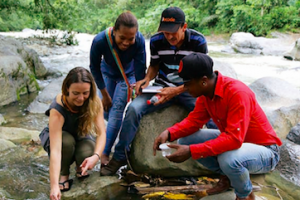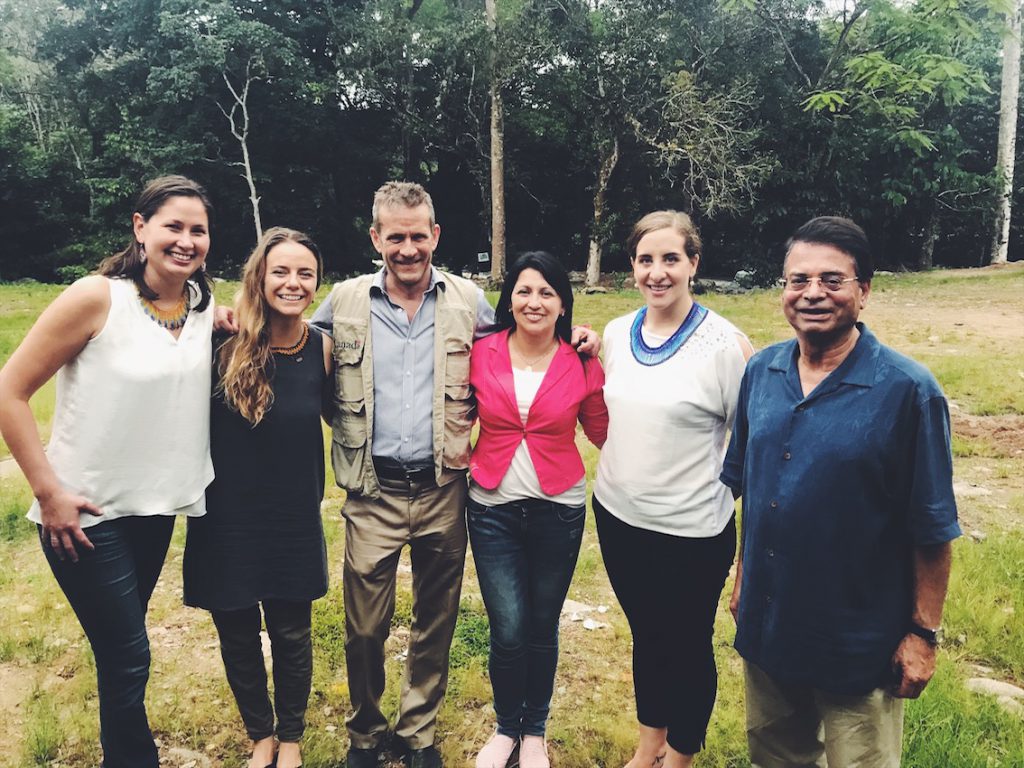International Community-Based Water Monitoring Experiences: COLOMBIA
Canadian experiences in community-based water monitoring were recently shared in Columbia as part of the Building the Extractive Sector Governance in Colombia (Comunica) project, which Agriteam Canada Consulting Ltd. is implementing on behalf of Global Affairs Canada.
Raegan Mallinson, Water Stewardship Lead with Living Lakes Canada, was one of two experts from Canada who travelled to Colombia to take part in the National Forum for Watershed Keepers gathering in Pereira, Colombia from November 14th-16th, 2017, which Comunica held in partnership with the National Environmental Ministry in Colombia (MADS). She was joined by Gila Somers with the Government of the Northwest Territories.
With a focus on vulnerable populations including children, youth, women, rural and indigenous populations, the forum was an invaluable learning opportunity for community members, government officials, technical professionals and academia.
Experiences of community-based monitoring in Canada, including program development, technology, equipment and current protocols were shared with 50 regional representative watershed keepers from across Colombia.
On behalf of Living Lakes Canada, Raegan was on hand to discuss Living Lakes Canada’s involvement with Living Lakes International as well as the Colombian Living Lakes member group at Lake Tota. Other Living Lakes Canada activities that she covered included: Living Lakes Canada’s involvement with the release of the Canadian National Citizen Science Freshwater Monitoring Program in partnership with the World Wildlife Fund-Canada, Environment and Climate Change Canada and University of Guelph; and the field testing of the new environmental DNA protocol to make benthic data collection more affordable, accurate and efficient.
Raegan also shared water quality monitoring program case studies from the Upper Athabasca watershed in Northern Alberta to the Flathead and Columbia valleys in British Columbia using the Canadian Aquatic Biomonitoring Network (CABIN) protocol as successful community-based monitoring examples; and the inclusion of Traditional Knowledge through a language preservation Pilot Project launched last summer in partnership with Ktunaxa Nation using the CABIN protocol.
Following the Forum, the experts from Canada travelled to Bogota to share experiences with governance officials, including the Ministry of Environment and Sustainable Development and the National Agency of Environmental Licenses.
The recently released National Biomonitoring program was released in draft form and discussed for possible inclusion in future community-based monitoring programs in Colombia.
Travelling to Putumayo, the duo then met with local community monitors, local technical institutes and local governors to exchange community-based monitoring experiences and share what environmental concerns face communities in Canada. In turn, they learned of the water pollution concerns in the Putumayo region.

LLC’s Raegan Mallinson with local community-based water monitors in Putumayo, Colombia.
There was great interest in water monitoring training by all community members, who understood there were many steps needed to develop a program and the necessary capacity needed, but were keen and interested all the same.
Rounding out their trip, the experts met with the Ambassador of Canada in Colombia for a water quality monitoring demonstration with local representatives to showcase what they had learned in the workshops and the success of the program in the preliminary stages. The demonstration included a water blessing ceremony for everyone to participate in, held by local Indigenous leaders and assistants, and the event proved to be a great cultural exchange between the team from Canada and Colombians present.
Community-based monitoring (CBM) helps people understand current threats to freshwater including use, pollution and climate change. Training citizens to become citizen scientists empowers local community members to become more involved and better able to understand their surroundings.
Living Lakes Canada recently released a co-authored national CBM case study, Realizing the Potential of Community Based Monitoring in Assessing the Health of Our Waters, where the universal challenges for CBM were outlined which included: ensuring credible data, connecting Indigenous Traditional Knowledge and Science, engaging and motivating citizens, data accessibility and aggregation, and informing decision-makers.
Many of these challenges, which can be turned into opportunities, are similar for Colombia, where community capacity development is underway, but further resources (long-term education and funding) need to be put towards training community monitors to steward their own watersheds, as what has been done in Canada.
Developing well-organized and planned projects to carry out these trainings is essential.

Canadian community-based monitoring experts, with Ambassador to Canada in Colombia and Comunica Project team.





